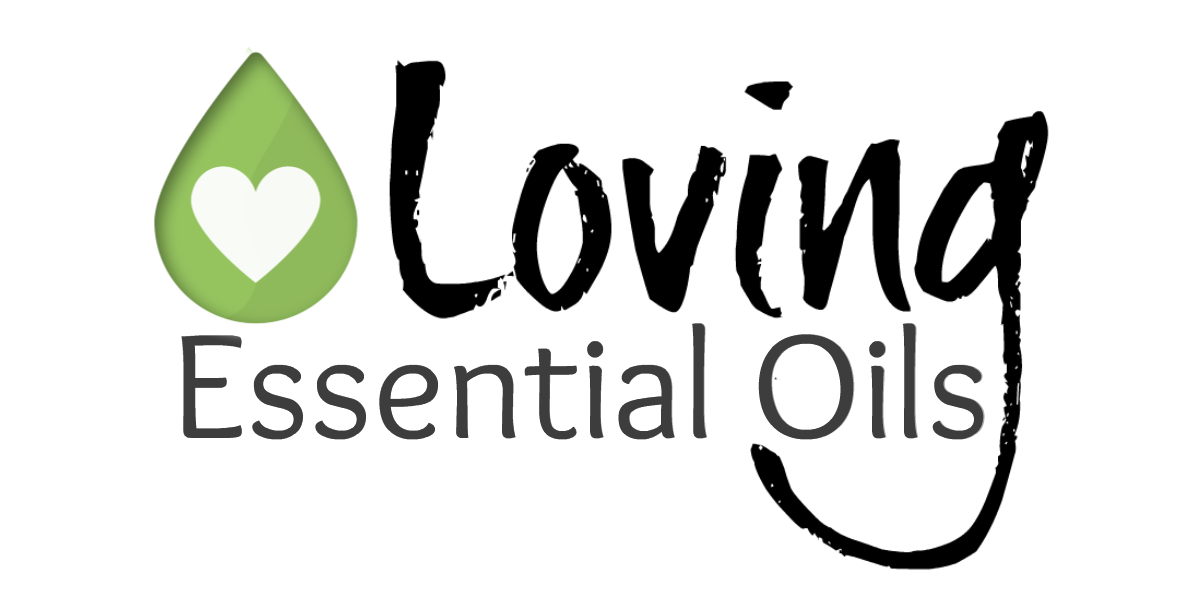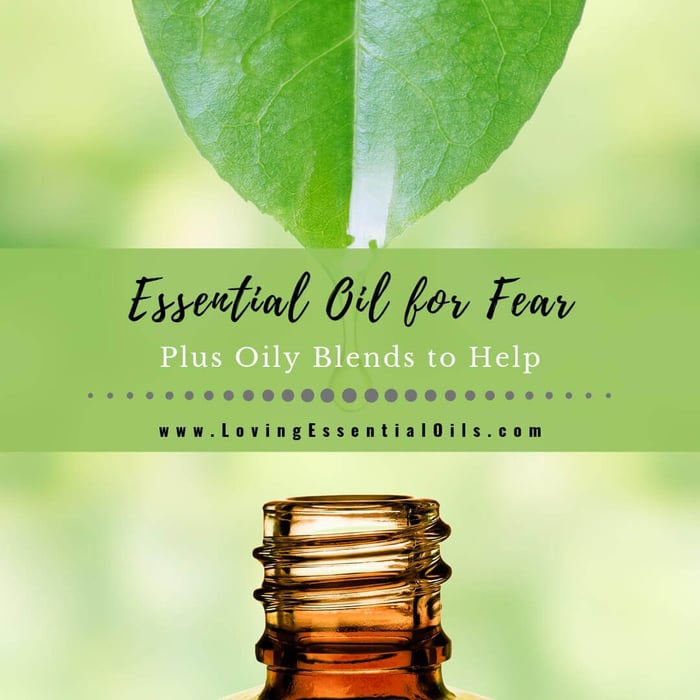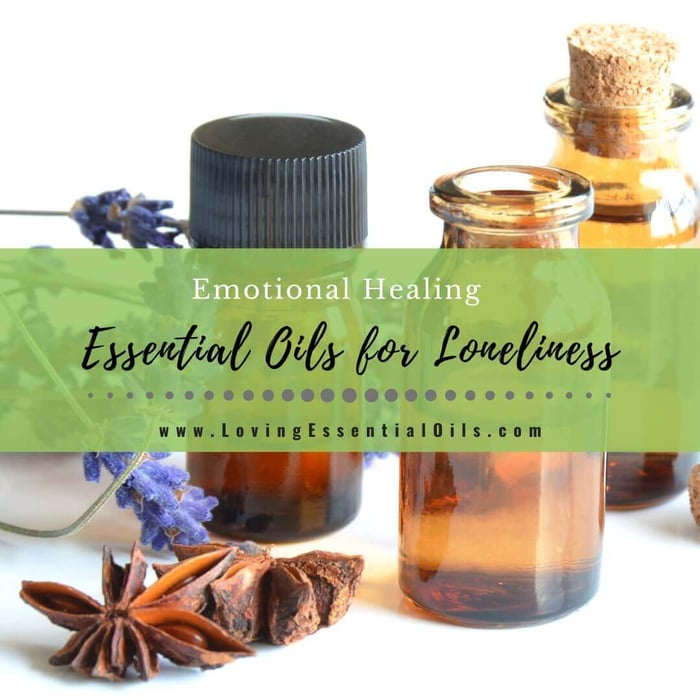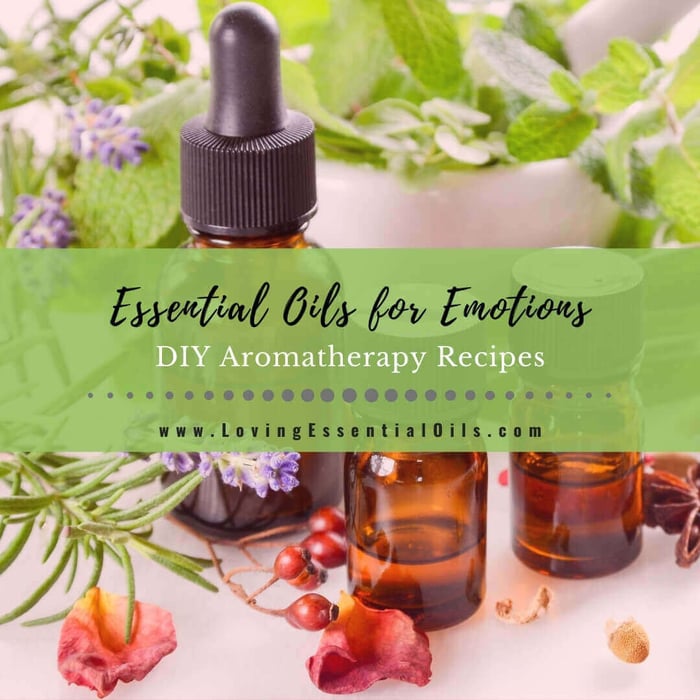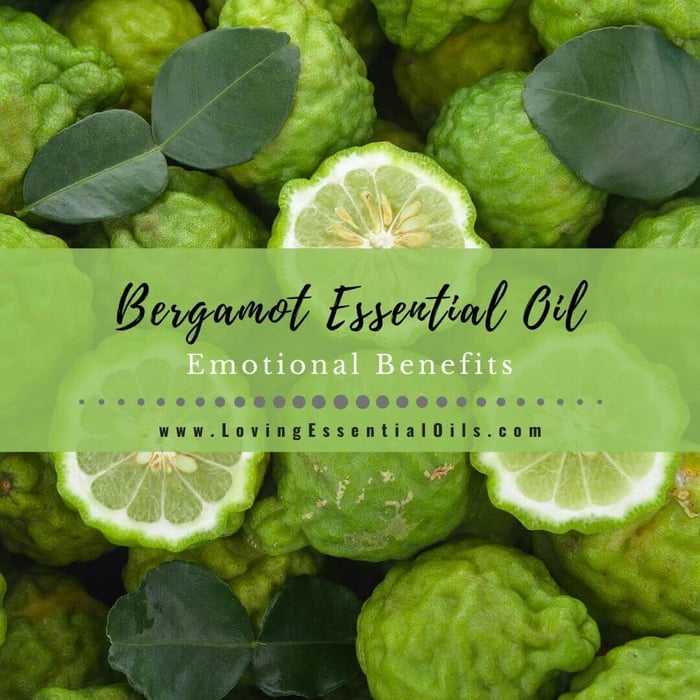Table of Contents
- Why Do We Feel Fear?
- Essential Oils and Fear
- 15 Best Essential Oils for Fear and Anxiety
- 1. Frankincense Essential Oil:
- 2. Cedarwood Essential Oil:
- 3. Neroli Essential Oil:
- 4. Basil Essential Oil:
- 5. Clary Sage Essential Oil:
- 6. Sandalwood Essential Oil:
- 7. Cypress Essential Oil:
- 8. Vetiver Essential Oil:
- 9. Juniper Berry Essential Oil:
- 10 Lemon Essential Oil:
- 11. Bergamot Essential Oil:
- 12. Orange Essential Oil:
- 13. Lavender Essential Oil:
- 14. Roman Chamomile:
- 15. Grapefruit Essential Oil:
- Are there any safety precautions to consider when using essential oils?
- 5 Essential Oil Blends for Fear
- Can essential oils be used in combination with other therapies for fear management?
- Are there specific essential oils recommended for children experiencing fear?
- FAQs
Fear is necessary for survival, but sometimes fear can overpower our thoughts and lead to worry, stress, and anxiety. Using essential oils for fear can be of great assistance.
By smelling essential oils, we can feel a sense of calm, safety, bliss, confidence, and peace. Essential oils can likewise promote deep breathing, which is proven to induce relaxation in the body.
If this resonates with you, and you’re curious about how essential oils can support you in managing fear, then you’re in the right place. Let’s explore this together!
Why Do We Feel Fear?
Whether it is the fear and worry you feel during a visit to a haunted house or the deep-rooted worry from life circumstances (fear of change, worry of death), fear has a vital function in our survival.
Fear is essentially an automatic response in our body called "fight or flight".
The fight or flight reaction is a process that begins in the limbic system.
When fight or flight activates, our body goes into overdrive: our heart races, lungs expand, pupils dilate, digestion slows, and a surge of adrenaline (epinephrine) floods our system. It’s all about preparing us to either stand our ground or make a swift escape. It’s truly remarkable how our bodies are wired!

Essential Oils and Fear
The anxiety of being afraid can be crippling. It's important to know that there are ways to manage fear using the power of essential oils. Let's have a look at the connection between essential oils and fear.
Fight or flight action begins in the amygdala, an almond-shaped set of nerve cells in the limbic system, which happens to be related to our sense of smell.
When we smell something, the olfactory nerve cells send out a signal to our limbic system. The signal travels through the olfactory nerves and bulb, directly into the amygdala (the same place that fight or flight begins).
Do you see the connection between our sense of smell and fear? This is how essential oils can help calm you when fear starts to get in the way.
Can essential oils help with specific phobias or intense fears
While essential oils can provide support for general anxiety and fear, they may also help with specific phobias by promoting relaxation and emotional balance. Oils like Frankincense and Lavender can help ground individuals during moments of intense fear. However, for severe phobias, it's crucial to seek professional help, as essential oils should be used as a complementary tool rather than a standalone treatment.
Ultimate Essential Oil Recipes Guide - DIY Blends
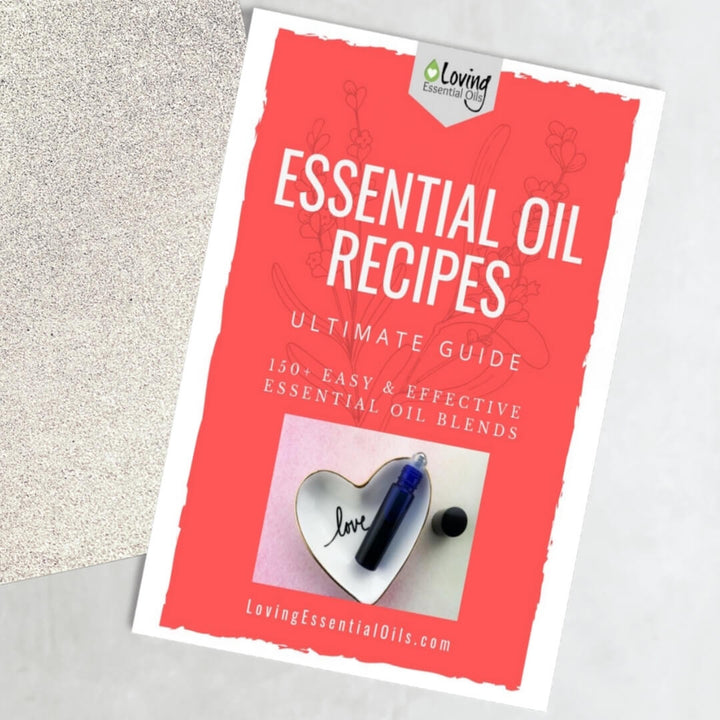
$ 9.99
DIY Essential Oil Recipes Ultimate Guide - Download/Printable Using essential oils for natural health and wellness can be really amazing. In this Ultimate DIY Recipes Guide you will learn simple ways to make homemade recipe with essential oils. I love… Read More
15 Best Essential Oils for Fear and Anxiety
There are various levels of fear, some are frightening and incapacitating, while others may be unpleasant fears that linger in our thoughts. Essential oils can help when the fear that is felt is out of proportion to the event that we are facing.
Here is a list of essential oils for fear that are known to help calm and soothe worry. You can use one oil or a blend of a few.
1. Frankincense Essential Oil:
Known as the "king of oils," Frankincense offers profound grounding and calming properties. It helps to quiet the mind, promote feelings of peace, and can be particularly helpful during moments of intense worry. Research suggests its ability to reduce anxiety and stress, making it a powerful ally for emotional balance.
2. Cedarwood Essential Oil:
With its warm, woody, and earthy aroma, Cedarwood is excellent for promoting relaxation and helping to alleviate nervous tension. It creates a comforting atmosphere, encouraging a sense of stability and security when fear feels overwhelming.
3. Neroli Essential Oil:
This exquisite floral oil is renowned for its uplifting and soothing effects on the nervous system. Neroli can significantly reduce feelings of anxiety and promote emotional well-being, making it ideal for moments of panic or distress.
4. Basil Essential Oil:
An invigorating and clarifying oil, Basil can help to clear mental fog and reduce feelings of mental fatigue often associated with prolonged worry. Its herbaceous scent can provide a refreshing boost when you feel overwhelmed.
5. Clary Sage Essential Oil:
Known for its euphoric and balancing properties, Clary Sage is a wonderful oil for easing stress and nervous tension. It can help to calm an overactive mind and promote a sense of inner peace and relaxation.
6. Sandalwood Essential Oil:
The rich, woody, and sweet aroma of Sandalwood is deeply grounding and meditative. It promotes mental clarity and a profound sense of calm, making it excellent for centering yourself when fear takes hold.
7. Cypress Essential Oil:
With a fresh, clean, and woody scent, Cypress essential oil is often used to help process feelings of loss, grief, and emotional stagnation. It promotes emotional flow and can bring a sense of comfort and security.
8. Vetiver Essential Oil:
This deeply earthy and grounding oil is incredibly calming and can be very effective for severe anxiety and insomnia. Vetiver helps to anchor your emotions, providing a sense of stability when you feel scattered or fearful.
9. Juniper Berry Essential Oil:
Offering a fresh, crisp, and slightly woody aroma, Juniper Berry is known for its cleansing and uplifting properties. It can help to dispel feelings of fear, negativity, and worry, promoting a more positive outlook.
10 Lemon Essential Oil:
The bright and refreshing scent of Lemon essential oil is wonderfully uplifting and can significantly improve mood. It helps to reduce stress and anxiety, bringing a sense of cheerfulness and mental alertness.
11. Bergamot Essential Oil:
This citrusy, yet subtly floral oil is highly regarded for its ability to reduce anxiety and stress while promoting relaxation. Bergamot has been shown in studies to have significant anxiolytic effects, making it a popular choice for emotional support.
12. Orange Essential Oil:
Sweet Orange essential oil has a wonderfully uplifting and cheerful aroma. It's known for its ability to reduce anxiety, promote happiness, and create a warm, inviting atmosphere, helping to ease fearful thoughts.
13. Lavender Essential Oil:
Perhaps the most well-known calming oil, Lavender is a classic choice for reducing stress, anxiety, and promoting restful sleep. Its versatile and soothing aroma has been extensively studied and proven to possess significant anxiolytic properties.
14. Roman Chamomile:
A gentle and soothing oil, Roman Chamomile is excellent for calming nerves and promoting deep relaxation. Its sweet, apple-like aroma is particularly beneficial for children and those with sensitive systems experiencing fear or agitation.
15. Grapefruit Essential Oil:
The invigorating and refreshing scent of Grapefruit essential oil is known for its uplifting qualities. It can help to reduce stress and mental fatigue, providing a burst of positive energy when fear feels draining.
What to know how to use essential oils for fear? I’ve put together some of my favorite essential oil recipes for fear below. These are blends I’ve crafted and used myself, and I’m excited for you to try them!
Are there any safety precautions to consider when using essential oils?
Yes, safety is crucial when using essential oils. Always dilute essential oils with a carrier oil before applying them to the skin to prevent irritation. Conduct a patch test to check for allergic reactions.
Pregnant or nursing women, children, and individuals with certain health conditions should consult a healthcare professional before use. Additionally, avoid ingesting essential oils unless under the guidance of a qualified practitioner, as some oils can be toxic when consumed.
5 Essential Oil Blends for Fear
The anxiety of being afraid can be crippling. It's important to know that there are ways to manage fear using the power of essential oils. Give one of these essential oil recipes for fear a try.
Fearlessly Diffuser Blend
- 2 drops Lavender
- 2 drops Frankincense
- 2 drops Juniper
- 2 drops Sweet Orange
Directions: Add essential oils to an aromatherapy diffuser with recommended water for your diffuser tank. I like to use a 100-200 ml water tank diffuser but you can use whatever size you prefer.
Read More: Diffusing Essential Oils

Fearless Inhaler Recipe
- 6 drops Sweet Orange
- 4 drops Juniper Berry
- 3 drops Bergamot
- 2 drops Clary Sage
- Blank Inhaler
Directions: Add essential oils to the cotton wick and insert it into the inhaler. To use, bring the inhaler under nostrils and take a deep breath in.
Fear Who? Roller Blend
- 2 drops Clary Sage
- 2 drops Juniper Berry
- 2 drops Frankincense
- Jojoba Oil
- 10 ml Roller Bottle
Directions: Add essential oils to the roller bottle, fill the rest of the bottle with jojoba oil. Place rollerball on and roll the bottle between palms to blend. Be sure to label your bottle. 3% dilution.
Read More: How to Make and Use Roller Bottles
No Fear Inhaler Recipe
- 5 drops Bergamot
- 4 drops Lemon
- 3 drops Basil
- 3 drops Clary Sage
- Blank Inhaler
Directions: Add essential oils to the cotton wick and insert it into the inhaler. To use, bring the inhaler under nostrils and take a deep breath in.
Read More: How to Use Essential Oil Inhalers
Release Fear Bath Blend
- 2 drops Cypress
- 2 drops Vetiver
- 2 drops Sweet Orange
- 1 tablespoon Castile soap
Directions: Mix essential oils into Castile soap, add to a warm bath and swirl around.
Read More: How to Use Essential Oils in the Bath
Can essential oils be used in combination with other therapies for fear management?
Absolutely! Essential oils can complement other therapeutic approaches, such as cognitive-behavioral therapy (CBT), mindfulness, or meditation. Using essential oils during these practices can enhance relaxation and emotional processing. However, it's essential to communicate with your therapist or healthcare provider about your use of essential oils to ensure a cohesive approach to your mental health care.
Are there specific essential oils recommended for children experiencing fear?
Yes, certain essential oils are considered safe and effective for children. Oils like Lavender, Roman Chamomile, and Sweet Orange are known for their calming properties and can help ease fear and anxiety in children. Always dilute these oils appropriately and consult with a pediatrician or a qualified aromatherapist to ensure safety and proper usage for younger individuals.
Share on Pinterest

About the Author: Jennifer Lane
My passion for essential oils extends to a deep understanding of their therapeutic properties and the art of blending. Through extensive personal practice and dedicated study, I've honed my ability to craft effective aromatherapy solutions for emotional well-being. This expertise allows me to confidently share insights and practical recipes for managing fear and worry, empowering others to find calm and balance through the power of nature's essences.
FAQs
How do essential oils work to alleviate fear and anxiety?
Essential oils interact with the olfactory system, which is closely linked to the limbic system in the brain, responsible for emotions. When inhaled, the scent molecules from essential oils stimulate the amygdala, helping to regulate emotional responses. This can lead to a reduction in feelings of fear and anxiety, promoting a sense of calm and relaxation. Different oils have unique properties that can target specific emotional states, making them effective tools for emotional support.
How long does it take to feel the effects of essential oils on fear and anxiety?
The effects of essential oils can vary from person to person. Many individuals report feeling immediate relief from anxiety or fear after inhaling or applying essential oils. However, for more profound emotional issues, consistent use over time may be necessary to experience lasting benefits. It's essential to find a routine that works for you and to be patient as you explore the calming effects of essential oils.
How can I incorporate essential oils into my daily routine for fear management?
Incorporating essential oils into your daily routine can be simple and effective. You can diffuse oils in your home, apply diluted oils to pulse points, or use them in bath blends for relaxation. Creating a calming ritual, such as a morning or evening routine that includes essential oils, can help establish a sense of safety and calm. Additionally, using inhalers or roller blends can provide on-the-go support during stressful moments.
